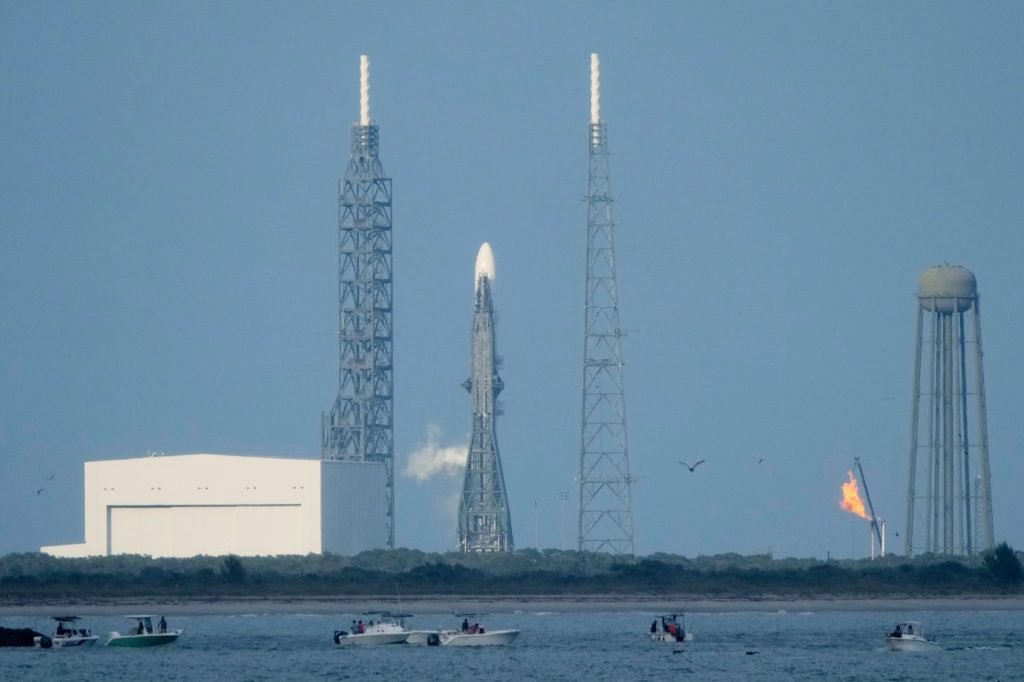CAPE CANAVERAL, Fla. (AP) – Intense solar storms have led to dramatic auroras across the United States, causing a significant delay in the launch of Blue Origin's latest rocket. Scheduled for Wednesday, the launch was thwarted by both adverse weather conditions and the heightened solar activity impacting space operations.
The New Glenn rocket, which is designed for carrying payloads into orbit, was set to launch in the afternoon from Cape Canaveral, Florida, carrying two Mars orbiters for NASA. However, just five hours before the planned liftoff, decision-makers at NASA opted to postpone the launch due to concerns about increased radiation stemming from the solar storms.
Nasa expressed worries that the increased radiation levels could adversely affect the sensitive instruments housed within the Mars-bound spacecraft. This decision highlights the agency’s commitment to ensuring the safety and integrity of its missions, especially given the significance of reaching Mars with the two orbiters, which play roles in upcoming explorations.
The New Glenn rocket, which stands at an impressive 321 feet (98 meters), is notably larger and more powerful than Blue Origin's earlier New Shepard rockets, which are primarily designed for suborbital missions and have been used for launching passengers from Texas. This launch would have marked only the second flight of the New Glenn rocket, which initially debuted in January, making this postponement a notable event in the context of the rocket's operational history.
As officials work to assess the impact of the solar storms, they are optimistic about attempting the launch again on Thursday, as they continue to monitor conditions closely. Such rescheduling reflects the flexibility required in the aerospace industry, where both atmospheric and extraterrestrial conditions must be taken into account during launch preparations.
This situation not only emphasizes the complex interplay between solar weather and space exploration but also showcases NASA's vigilant approach to safeguarding its missions amid unpredictable solar activity. The developments underline the broader implications of solar phenomena on technological operations and the importance of robust planning in the face of natural events.
The Associated Press Health and Science Department receives backing from the Howard Hughes Medical Institute's Department of Science Education and the Robert Wood Johnson Foundation. However, the AP retains full responsibility for all content presented in its reports.
Marcia Dunn, The Associated Press












